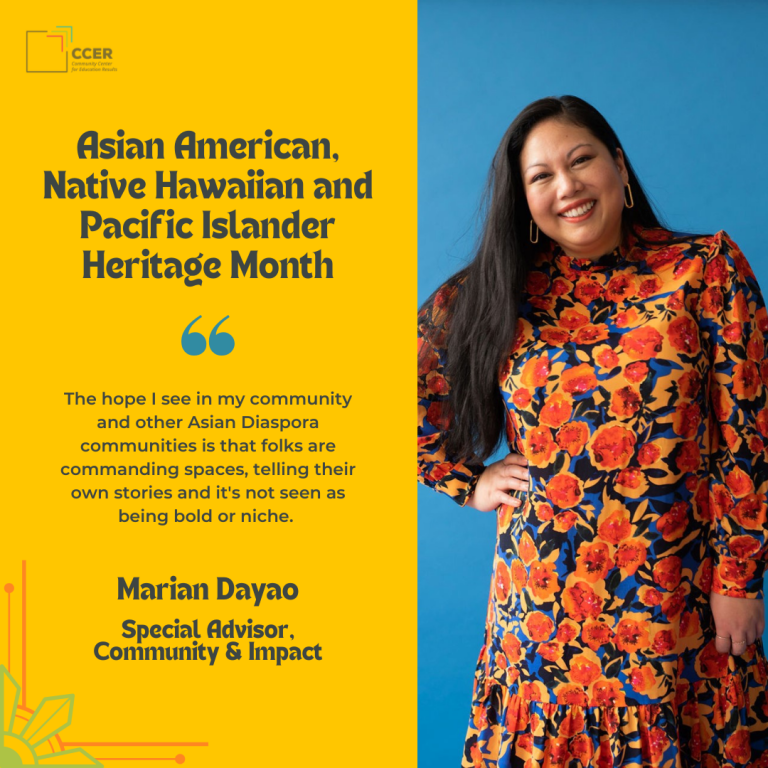
May is National Asian American, Native Hawaiian, and Pacific Islander Heritage Month, and we’re celebrating none other than Marian Dayao (pronounced dye-yow), our Special Advisor, Community & Impact! Marian ensures CCER runs seamlessly behind the scenes, and brings a wealth of knowledge and compassion to serving her community. When she’s not making the staff’s nose run with spicy food at meetings, she also serves as the Board Chair for Lake City nonprofit Literacy Source.
CCER: What brings you the most joy as a part of your community?
MD: The food! Though not unique to my community, gathering, cooking, feeding, and sharing a meal with one another has always been central to the Filipino community. It’s been really incredible to see Filipino food be embraced by other cultures, by those outside of our community. It’s the achievement of some brilliantly talented, passionate, chef-activists in our region like Melissa Miranda and her team at Musang (amongst so many others) who are continuing the work of our elders before us to uplift our Filipino and Filipino-American community, to share our stories, to feed and nourish all those you meet along the way. It makes me so proud and emotional seeing my peers trailblazing and being recognized on national platforms for the work they’re doing here in our region. It’s not a coincidence that the folks leading the way for this next generation of our community are doing it first and foremost through their food.
CCER: You recently shared a powerful story about your last name. Could you share more?
CCER: What are some ways you see hope for the future narrative of your community?
MD: The hope I see in my community and other Asian Diaspora communities that folks are commanding spaces, telling their own stories and it’s not seen as being bold or niche. No more playing small, move past dominant white culture’s expectations and stereotypes of us. Give ourselves flowers, be the main character!
CCER: What’s your favorite childhood memory?
MD: My favorite childhood memory is probably traveling to other countries with my family. Whether it was summer vacations visiting family in the Philippines, or fast-paced, culture-packed trips with my mom, I will always be grateful for the exposure I had to other peoples and cultures. My mom worked for an airline, so my childhood was blessed with these opportunities for cultural enrichment.
You can read more about Marian here.
Posted in: Uncategorized